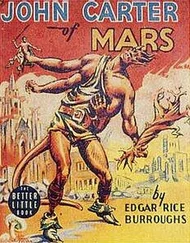Philip Dick - Mary And The Giant
Здесь есть возможность читать онлайн «Philip Dick - Mary And The Giant» весь текст электронной книги совершенно бесплатно (целиком полную версию без сокращений). В некоторых случаях можно слушать аудио, скачать через торрент в формате fb2 и присутствует краткое содержание. Жанр: Фантастика и фэнтези, на английском языке. Описание произведения, (предисловие) а так же отзывы посетителей доступны на портале библиотеки ЛибКат.
- Название:Mary And The Giant
- Автор:
- Жанр:
- Год:неизвестен
- ISBN:нет данных
- Рейтинг книги:4 / 5. Голосов: 1
-
Избранное:Добавить в избранное
- Отзывы:
-
Ваша оценка:
- 80
- 1
- 2
- 3
- 4
- 5
Mary And The Giant: краткое содержание, описание и аннотация
Предлагаем к чтению аннотацию, описание, краткое содержание или предисловие (зависит от того, что написал сам автор книги «Mary And The Giant»). Если вы не нашли необходимую информацию о книге — напишите в комментариях, мы постараемся отыскать её.
Mary And The Giant — читать онлайн бесплатно полную книгу (весь текст) целиком
Ниже представлен текст книги, разбитый по страницам. Система сохранения места последней прочитанной страницы, позволяет с удобством читать онлайн бесплатно книгу «Mary And The Giant», без необходимости каждый раз заново искать на чём Вы остановились. Поставьте закладку, и сможете в любой момент перейти на страницу, на которой закончили чтение.
Интервал:
Закладка:
"I've heard that," Mary Anne said when the record ended. "It's cute." She was seated on the rug, her back against the side of the couch, wineglass beside her. Absorbed in the music, Schilling barely heard her; he put on another record and returned to his chair. She listened attentively until it was over and he was turning the record.
"What was that?" she asked.
"Aksel Schitotz." Then he added the title of the work.
"You're more interested in who sings it. Who is he? Is he still alive?"
"Schiotz is alive," Schilling said, "but he's not singing much anymore. Most of his highs are gone ... all he has left now is his lower range. But he's still one of the really unique voices of this century. In some ways, the finest of all."
"How old is he?"
"In his late fifties."
"I wish," Mary Anne said energetically, "that I could get rid of my darn roommate. Do you have any ideas? Maybe I could find a smaller place somewhere that wouldn't cost too much."
Schilling lifted the needle from the record; it had not yet reached the grooves. "Well," he said, "the only solution is to search. Read the ads in the paper, go around town finding out what exists."
"Will you help me? You have a car ... and you know about these things."
"When do you want to look?"
"Right away. As soon as possible."
"You mean now? Today?"
"Could we?"
A little amused, he said: "Finish your wine first."
She drank it down without tasting it. Resting the glass on the arm of the couch, she scrambled to her feet and stood waiting. "It's seeing your place," she told him as they left the apartment. "I can't go on living with that fool-her and her Oregon apples and her mambo records."
At the corner drugstore Schilling picked up Saturday's edition of the Leader; there was no Sunday edition. He drove through town as Mary Anne, settled down beside him, scrutinized every ad and description.
Within half an hour they were tramping up the stairs of a great modern concrete apartment building on the edge of town, part of a newly developed improvement area, with its own stores and characteristic streetlamps. A tinted fountain marked the entrance of the area; small trees, California flowering plums, had been planted along the parking strips.
"No," Mary Anne said when the rental agent showed them the barren, hygienic suite of rooms.
"Refrigerator, electric range, automatic washer and drier downstairs," the agent said, offended. "View of the mountains, everything clean and new. Lady, this building is only three years old."
"No," she repeated, already leaving. "It has no-what is it?" She shook her head. "It's too empty."
"You want a place you can fix up yourself," Schilling told her as they drove on. "That's what you're looking for, not just something you can move into, like a hotel room."
It was three-thirty in the afternoon when they found what she wanted. A large home in the better residential section had been divided into two flats; the walls were redwood-paneled and in the living room was an immense picture window. A smell of wood hung over the rooms, a presence of coolness and silence. Mary Anne roamed here and there, poking into the closets, standing on tiptoe to peek into the cupboards, touching and sniffing, her lips apart, body tense.
"Well?" Schilling said, observing her.
"It's-lovely."
"Will it do?"
"Yes," she whispered, only half-seeing him. "Imagine how this would look with a Hollywood bed over there, and Chinese mats on the floor. And you could find me some prints, like those you have. I could build a bookcase out of boards and bricks ... I saw that once. I've always wanted that."
The owner, a gray-haired woman in her sixties, stood in the doorway, gratified.
Schilling walked over to Mary Anne and put his hand on her shoulder. "If you're going to rent it, you're going to have to give her a fifty-dollar deposit."
"Oh," Mary Anne said, dismayed. "Yes, that's so."
"Do you have fifty dollars?"
"I have exactly one dollar and thirty-six cents." Defeat settled over her; shoulders drooping, she said mournfully: "I forgot about that."
"I'll pay for it," Schilling said, already producing his wallet. He had expected to. He wanted to.
"But you can't." She followed after him. "Maybe you could take it out of my salary; is that what you mean?"
"We'll work it out later." Leaving Mary Anne, he crossed over to the woman with the idea of paying her.
"How old is your daughter?" the woman asked.
"Eh," Schilling said, staggered. There it was again, the reality under the surface. Mary Anne-thank God-hadn't heard; she had wandered into the other room.
"She's very pretty," the woman said, writing out the deposit receipt. "Does she go to school?"
"No," Schilling muttered. "She works."
"She's got your hair. But not quite so red as yours; much more brown. Shall I make this out in your name or hers?"
"Her name. She'll be paying for it." He accepted the receipt and herded Mary Anne out of the building and downstairs to the street. She was already plotting and planning.
"We can haul over my things in the car," she said. "I don't have anything very large." Rushing ahead of him, turning and skipping back, she exclaimed: "It doesn't seem possible-look what we've done!"
"Before you unpack your things," Schilling said practically, but experiencing the same spur of excitement, "the ceilings should be painted, wherever there isn't the wood paneling. I noticed the paper's beginning to decay."
"That's so," Mary Anne agreed, sliding into the car. "But where can we get paint on Sunday?" She was prepared to start work at once; he had no doubt of that.
"There's paint in the back of the store," he said as they drove toward the business section. "Left over from the redecorating. I kept it for touch-up. There's probably enough, if you don't object to the limited assortment. Or if you'd prefer to wait until Monday-"
Mary Anne said. "Could we start today? I want to move; I want to get in there right away."
While Mary Anne wrapped dishes in newspaper, Joseph Schilling carried the loaded cardboard cartons down the stairs and put them into the back of the Dodge. He had changed from his suit to wool work pants and a heavy gray sweatshirt. It was a shirt he had owned for years, given to him as a birthday present by a girl living in Baltimore. Her name was long forgotten.
In the back of his mind was the realization that, customarily, he should be in the store providing his Sunday afternoon record concert. But, he said to himself, the heck with it. He found it hard to concentrate on records or business; it was impossible to imagine himself going through the motions of lecturing on Renaissance modality.
They had dinner together at Schilling's apartment. Mary Anne, rummaging in the refrigerator, found a veal roast and prepared it for the oven. It was now six o'clock; outside, the evening street was fading. Standing by the window, Schilling listened to the sounds of the girl fixing dinner. Busily she opened drawers and brought out his various pots and pans and bowls.
Well, a lot had happened. He had gone a long way since the previous Sunday. He wondered what he would be doing in another week. He now had a certain life to lead, and a certain person to be. That person had to be careful of what he did and said; he had to be careful to keep on being that person. Could he keep it up? Anything could happen. He recalled his lecture to Mary Anne on the responsibility of opening up whole new fields for someone ... smiling at the irony, he turned from the window.
"Need any help?" he asked.
She appeared, a very slim, very high-breasted little figure, outlined in the kitchen doorway. "You could mash the potatoes," she said.
Watching her scurry about the kitchen, he was impressed. "You must have helped your mother a lot."
Читать дальшеИнтервал:
Закладка:
Похожие книги на «Mary And The Giant»
Представляем Вашему вниманию похожие книги на «Mary And The Giant» списком для выбора. Мы отобрали схожую по названию и смыслу литературу в надежде предоставить читателям больше вариантов отыскать новые, интересные, ещё непрочитанные произведения.
Обсуждение, отзывы о книге «Mary And The Giant» и просто собственные мнения читателей. Оставьте ваши комментарии, напишите, что Вы думаете о произведении, его смысле или главных героях. Укажите что конкретно понравилось, а что нет, и почему Вы так считаете.










